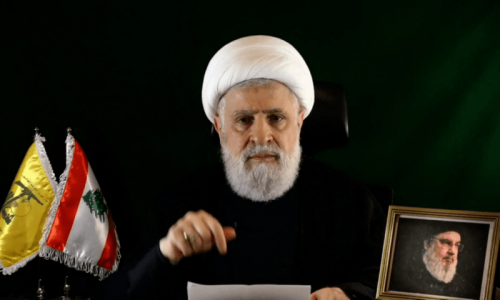RIYADH: Saudi King Abdullah hosts US President George Bush at his ranch outside Riyadh on Monday, but despite the intimacy of the setting the two allies face “difficult talks” on Iran and the Middle East conflict, analysts and diplomats say.
Saudi officials have expressed alarm at the mounting war of words between Washington and Tehran and pointedly called for restraint on both sides when a naval confrontation at the entrance to the
Gulf sparked a new flare-up earlier this month.
The king is also set to rebuff Bush's call — issued in Israel on the first leg of his week-long Middle East tour — for Arab nations to “reach out” to the Jewish state, an official said.
Foreign Minister Prince Saud al-Faisal set the tone on Wednesday when he said that the kingdom wants to maintain peaceful ties with Iran, despite the new tensions between Washington and Tehran sparked by the face-off in the Strait of Hormuz three days earlier.
“We will listen with interest to any issue raised by President Bush,” Saud told reporters when asked about Bush's stated intention to discuss the importance of countering Iran's “aggressive ambitions.”
But “Saudi Arabia is a neighbour of Iran in the Gulf, which is a small lake. We are keen that harmony and peace should prevail among states of the region,” he said.
“We have relations with Iran and we speak with them. If we sense any threat (from Iran) ... we will speak with them about it.” This suggests that Riyadh is not prepared to give up its relations with Iran in pursuit of “the unclear goals of the US administration's hostile policy”, commented political analyst Khalid al-Dakhil.
Saudi Arabia and Iran are in contact over important issues such as Iraq and Lebanon, and the Saudis, like other Gulf Arabs, have paid a high price for armed conflicts in the region over the past three decades, he said.
The message was amplified by the leading daily Al-Riyadh, which ruled out the use of Saudi Arabia as a launchpad for any US military action against Iran.
“We refuse to be used to launch wars… with Iran,” wrote the paper, which reflects government thinking.
Bush should not “preoccupy himself with a danger which US intelligence has qualified as non-existent in the short term,” it said, referring to a new US intelligence assessment released last month that concluded that Iran had halted a nuclear weapons programme in 2003.
The US leader will arrive in Riyadh after visiting three other Gulf allies — Kuwait, Bahrain and the United Arab Emirates — where officials and commentators have voiced similar unease at the prospect of a military showdown despite concern over Tehran's nuclear ambitions.
Saudi Arabia sat down with Israel at a conference in Annapolis outside Washington last November which relaunched peace negotiations with the Palestinians.
But a Saudi official said that it was also “out of the question” for the kingdom to forge ties with the Jewish state before a settlement is reached in line with a Saudi-drafted peace plan.
The proposal, adopted by the Arab League in 2002 and revived at a summit in Riyadh last March, offers Israel full normalisation of relations if it withdraws from all land seized in the 1967 war and allows the creation of a Palestinian state and the return of Palestinian refugees.
Bush's two-day visit will be his first to Saudi Arabia. Several of his predecessors came to the kingdom, which has traditionally had close political and military ties with Washington.
A source in the Saudi ruling family who requested anonymity said that King Abdullah was keen on hosting Bush at his ranch in Janadriyah, 40km northeast of the capital, because the US leader received him twice — in 2002 and 2005 — at his Prairie Chapel ranch in Crawford, Texas, when he was crown prince and de facto ruler.—AFP














































Dear visitor, the comments section is undergoing an overhaul and will return soon.